- Home
- Kate Quinn
A Song of War: a novel of Troy Page 18
A Song of War: a novel of Troy Read online
Page 18
“It will pass, my love. This will be forgotten in a few weeks. I plan on the assault, as I have said—”
“You’re not listening to me!” she said and burst into tears. “You’re not hearing me!”
He rushed to her and took her in arms. “I will make it right,” he soothed, kissing her raven-colored hair. “I will make it right.”
“You can’t!” she sobbed. “My fucking father—gods curse him. He brought this upon us!”
“No he didn’t... ”
“Don’t tell me this is the usual sickness. No one thinks that. The men don’t think that. They think it’s me. They think it’s me... ”
“What are you saying?”
“It might be true,” she sobbed. “What if it is true? That I have brought the curse.” She looked at him, her face red and mottled, her eyes shot with tears. “I have to go back.”
The words struck him in the heart with a blade of ice. “No,” he said. “No, Chryseis, you cannot. I will not allow it. We are to be together. The child... ”
“Stop it!” she screamed “Stop it! My heart is broken! But we must do this, Agamemnon. If not, they will kill us anyway. Sooner or later. I have to go back,” she said again, and this time Agamemnon’s tears fell with hers. He held her close, as though somehow this closeness would make it all stop, make the curse end, and make it all well again.
But he knew it would not.
Agamemnon held his love and wept, his heart breaking as he kissed her, hating that everyone was right and he was wrong, hating that he had given everything for a war he no longer believed in, and hating—above all—the gods themselves.
They spoke for hours, both making promises that they knew would be hard to keep: how Agamemnon would find her at the end of the war and bring her home, how he would give it all up and they would live together with their child.
But they both knew that her one-eyed father, Chryses, would make that impossible—that Agamemnon would probably never find her. But he promised and vowed that he would upend the earth itself searching for her until, after a while, the wine allowed the grief to pass and the anger to vent.
“That fucking Achilles,” Agamemnon spat. “He will take this as a victory. Then he’ll ride to glory on the back of my leadership. I hate him, Chryseis.”
“Then hurt him,” she hissed. “Hurt him as we are hurt.”
“How?” Agamemnon was so drunk he was struggling to think straight. “How? I cannot beat him in a fight; the men love him, and Calchas ensures the gods love him, too. All I can hope is that a spear finds him in the battle and I will be rid of him.”
“Then don’t let him fight in the battle.”
“I cannot order that. The men wouldn’t stand for it. Don’t you know the prophecy that he and Calchas keep spouting? Troy cannot be taken without his blood and his ‘divine’ aid.”
“I know a way,” Chryseis’ voice was ragged from tears and rage. “You make his notion of honor work against him and for you. Do as I say, and at the end of it, the men will hate him and look again to you.”
“What must I do?”
“Make love to me for the last time.” She smiled through her tears. “And my last gift to you will be your redemption.”
Agamemnon could not bear to be present when they came and took her. Their good-byes had been said already, and he knew that she wanted to leave proud. Seeing him would break her. And the coward in him knew that seeing her would break him, too. The men would see him weep for a woman, and he would fall even further in their estimation.
He did not drink that day nor the next. Nor the day after; though he shook and craved for it, he did not allow a drop to pass his lips. And of course, word reached him that, as promised, the sickness had begun to dwindle and the deaths were fewer. The news seethed through the camp like the plague itself had once done. Apollo’s eye was turned from them, the curse lifted.
It made Agamemnon all the more bitter because he knew if they could have delayed a few more days, he’d have been proven right, Chryseis would still be at his side, and Achilles would have looked a fool.
Achilles.
Agamemnon’s smile was cold when he thought of the Phthian prince. He would have his vengeance upon him. Thanks to Chryseis, unscrupulous to the last, he would tear Achilles’ heart out as his own had been torn. And then Achilles would know loss. Achilles would know the emptiness of honorable words. Agamemnon would make a pyre and let the bastard burn on his words of honor.
The days without booze allowed Agamemnon to think more clearly. The pain of his loss was more, but he knew that no amount of wine could blunt it. No amount of wine could drink away the old wound of Iphigenia nor the fresh one of Chryseis.
All he had was vengeance and hate. There was nothing left. Vengeance against Achilles and vengeance against the Trojans. If not for them... if not for Paris... none of this would have come to pass. He would raze that city, and he would bathe himself in Priam’s blood. He would butcher the old man’s children before the Trojan king’s eyes so that he, too, would know pain and loss. And then he would spill the old man’s gizzards and drag him to Apollo’s temple as offering. Before he stood in the face of the god and laughed.
Agamemnon called a council on the fourth day, and none refused it. They came to the council hall in good spirits, and he saw forgiveness in the eyes of some, pity in those of Achilles’ lieutenant, Patrocles. A good man, save for his loyalty to the Phthian. Agamemnon wished it was Patrocles who commanded the Myrmidons; that would have made life much simpler. But of course, Patrocles wasn’t Phthian and hence could not lead them. Still, he certainly looked like them; at his age, he still had the muscle of a man in his twenties. The only incongruous things were that Patrocles often had a smile on his face and knew the meaning of manners. He gave Agamemnon one of those smiles now, and a part of him was grateful. More than a part: thanks to Patrocles’ bed-warmer, Skara, Chryseis had been able to find the knife with which he could stab Achilles.
Achilles.
Agamemnon’s eyes met those of the Phthian and saw smug triumph in them.
He allowed the men a chance for small talk and gossip before he called them to order. “The sickness has passed,” he said to grumbles of approval. “The men are recovering, and it is my intention to seize the initiative of this war and launch—as some of you have been pushing for—a major assault. It is time to end this.”
“It is high time,” Achilles said. “But I give thanks to the gods that you have reached this decision.” The Phthian prince glanced at Talthybius, and Agamemnon guessed that the herald had been true to his words and put about the truth about his love for Chryseis. “I know what you have given up,” Achilles said. “It could not have been an easy thing.”
Agamemnon’s grip tightened on the arm of his seat. How dare he? How dare he act conciliatory? Easy, he thought, to be the bigger man when you have given up nothing. He breathed in through his nose and let the air slip from his mouth, calming him. And he forced a smile. “Yes,” he said. “About that. As high king, the right of spoils are mine. As many have pointed out, Chryseis was merely a prize of war. A trophy, if you like. And now I find my share lacking. I demand recompense. You all swore an oath—and now I will claim my prize.”
“If it is in our power, we must grant it,” Achilles said, looking around for support. The men agreed. It was right and proper.
“I’m glad you see it that way,” Agamemnon said. “I am now without a woman. Hardly fair.” He made a show of thinking as he looked into the green eyes of Achilles—eyes, it was claimed, that came from his mother, a sea nymph. Eyes that grew wide as realization began to dawn. Agamemnon savored the look of growing horror—the powerlessness, the color draining from his cheeks as the sick dread was welling up inside him. He didn’t need to ask Achilles how it felt. He already knew. “Briseis was also a prize of war,” he said with a faint smile. “I’ll take her. As is my right. On the oaths you swore.”
Achilles rose to his feet, taut with rage,
and his hand twitched as though going for his sword. Agamemnon felt a stab of fear in his breast; the man was lethal, a warrior who killed with impunity—to be the object of his wrath was dangerous. Patrocles reached out and touched his commander’s arm, stilling him. An act for which Agamemnon was profoundly grateful.
“High king,” Achilles spat contempt. “High king? You are not worthy of the title. Does your greed know no bounds? Briseis is mine.”
Agamemnon had expected wild rage. Fury. But this was not that. This was stone-cold wrath, and it was unnerving to see the iron control the man had over himself. But he could see the pain in the Myrmidon’s eyes. The slight to his precious honor must be killing him.
“You will not have her,” Achilles said. “I will kill any man that tries to take her from me.”
“You swore an oath of fealty. To me,” Agamemnon said. “You will abide by it, or all will know that the honorable standards you set—standards that inspire us all, I’m sure—are in fact merely empty words. How, then, will you be remembered, Achilles? As the man who refused his king—a king he mocked for loving a woman—the gift of a woman that he himself holds dear. A slave. No. I will have Briseis. I’ll treat her well,” he added. “I’m sure that in time she will come to... enjoy my company.”
That one hit home, and Agamemnon saw the fury in his enemy’s eyes. “I curse you,” Achilles said. “By my mother’s blood, I curse you.”
“A bit late for that.” Agamemnon looked upward. “As you and others have had it, Apollo got there first. I’ve made my sacrifices. Time for you to make yours. Or are we no longer honorable men?”
Achilles was white in the face. “You dare speak of honor? You, who are a drunkard, a coward, an indolent bastard who hides behind the deeds of others. Honor—”
Agamemnon shrugged. “Honor demands you obey.”
He could see it. Crippling Achilles. Consuming him. Honor was a spider’s web, and the leader of the Myrmidons—named after obedient soldier ants—was now trapped inside it. There was nothing he could do but capitulate. He knew it; Agamemnon knew it; everyone knew it.
Capitulate. How does it feel, you bastard? How does it feel to lose?
Peerless Achilles defeated by his own notions. The cost of losing Chryseis was too high for Agamemnon to enjoy it, but he savored the other man’s impotent rage as he would the finest wine.
“I will do as honor demands, Agamemnon.” Achilles was trembling with suppressed rage.
He opened his mouth to speak again, but Patrocles—ever calm—rose and gripped the Phthian’s arm. “As Achilles says, so it will be. Honor will be satisfied.”
Achilles shook him off, unready to be silenced. “Know this,” he spat. “All of you. Mark my words and mark them well. I have no issue with the Trojans—they never came to my lands, never burned my fields, and never hurt my people. I have no more quarrel with them. I am done with this war. I will watch from my black ships as they burn yours, Agamemnon. And I will laugh in your face when you come to me on bended knee and beg me to save your army.” He stormed out of the hall, leaving a shocked silence in his wake.
Agamemnon allowed him his moment. Allowed Achilles’ words to resonate with the men. Allowed them time to realize who was in control—and who was not.
Patrocles, red in the face, cleared his throat. “I will speak to him,” he said. “You’ve wounded him, Agamemnon, and you know how he can be.”
“I’ve put up with how he can be long enough, Patrocles. How you bear him, only the gods know.” He paused. “Go on. See to him.” Patrocles nodded and rushed from the council.
“The rest of you,” Agamemnon raked them with his gaze. “This is the man who had designs on my place. Say what you will of me, but ask yourself this: Is that the kind of man you want as your leader? Is that the kind of man who you’d trust with your lives? The lives of your men? You heard it from his own lips. He wants us to lose. Because of a woman?
“I’m aware of the irony, kings and princes. The spear cast at me is now cast at him, and he acts like a petulant child. Yes. I reacted with fury when I faced the decision he now faces. That I will admit. But I did not abandon you as he has. I did not threaten you with defeat—yet Achilles would see all our endeavors here fail. Or at least that’s how he would have it.
“We can’t win without him? What does that say of mighty Ajax? Of Diomedes? Of Odysseus? Of all of you? What? That you are lesser than Achilles? That you are unmanned without him? If you think that, then let us depart. Let us return home like whipped dogs and try to ignore the Furies that will haunt our dreams for what we have given up here.
“I say that we take the fight to Troy. I say that that we defeat them on the field of battle. I say that we take what is theirs and sear our names into great tales with blood, fire, and glory. And I say that all will remember us. And none shall speak of Achilles but to say that he was the only one of us who ran.”
They cheered him.
They, who not days before were cursing his name, cheered him. Agamemnon had always known that men were base. That he was so utterly correct both pleased and saddened him at the same time.
Agamemnon tried to savor his victory. Tried to enjoy it. But the truth of it was that without Chryseis at his side, everything seemed so hollow. Humbling Achilles had been necessary. He told himself this as he sat in his quarters—drinking alone once more as a reward for several days of abstinence. Achilles would have led everyone to ruin with his notions; but as the immediate, heady rush of humiliating the man wore off, Agamemnon began to fret.
Chryseis had been sure: deny Achilles his prize, and Achilles would withdraw from battle—handing Agamemnon his victory and redemption. In that, she had been correct. However, neither she nor Agamemnon had counted on the intensity of Achilles’ wrath. Agamemnon counted himself brave; but he was honest enough to know that even on his best days—which were fewer and farther between—he had no chance against Achilles.
Hard as that was to admit, he consoled himself with the fact that on most men’s best day, they’d have no chance against Achilles.
But now Agamemnon had to drive it home to all that it was the high king who controlled things. And do to that, he would have ensure that Achilles’ humiliation was utter.
He would have to violate this Briseis—even if he knew it was beneath him and she didn’t deserve it. But her degradation would be Achilles’, her shame would be his, her submission his own.
Agamemnon drank—too much, he knew, but he drank anyway, and by the time they brought her to him, he was drunk.
He regarded her as she stood before him, head held high, her eyes meeting his own. As Chryseis had done when she’d chosen him. But there was no hunger in this one’s eyes. Only contempt. Briseis was tall and handsome enough in the face, chestnut haired, long-legged. But her build was lithe and muscular, altogether too boyish. Nothing like Chryseis, who was soft and curvaceous, as a woman should be. “So,” he said. “You’re the one.”
She didn’t respond. She just held him with her murderous gaze, and Agamemnon could see in her eyes the thousand ways in which she wanted to kill him. Where, he wondered, was the fire that he needed? He had to do it.
“Take your clothes off,” he said.
She snorted in derision and undid her chiton. It fell to the floor with a sibilant whisper of cloth. It was like looking at a dickless boy, Agamemnon thought. He drank some more wine, willing his cock to even twitch at the sight of her. But it did not.
It wasn’t just that she was unattractive and sexless. It wasn’t even that she hated him. Agamemnon had fucked plenty of slaves that hated it—and him–—and he cared not a jot. It was that he knew in that moment that fucking her wouldn’t be a victory for him. That fucking her wouldn’t break her. It would lessen him. Lessen him because that’s what everyone would expect him to do. And they’d expect him to brag about it.
It was all of that.
But most of all it was that she wasn’t Chryseis. She was in fact the object of Chryseis’
revenge, and every time he tupped her, he’d be forced to think of what he had lost.
But for all that, he still had to humiliate her—and in doing so, humiliate Achilles. What was it he had said once to Chryseis? “You’ve never much acted like a slave.” No. She had not. And nor did this one. Chryseis had told him she was a princess. Unused to work. Unused to hardship. Achilles treated her as though she were “an Olympian gift,” Chryseis had said. Well, Agamemnon hated the gods. Hated Achilles. And hated this Briseis because it was plain that she did not fear him.
He wouldn’t touch her. But he would break her. He’d break the arrogance. Break the pride. Break the woman. And in doing so, break Achilles. “You’re nothing,” he said. “From now on, you will clean chamber pots. You will carry my shit. It’s out back. Put your clothes on, see to it, and get out of my sight.”
“What?” she said, her eyes widening in shock. In realization. In horror.
“I said you will clean my shit. And then men will know that what Achilles values and holds dear... his pride... his honor... his Briseis... is all shit to me. You will be the lowest slave in this camp. You will be... nothing. Go on,” he waved a hand, “get on with it.” Her shoulders sagged, and Agamemnon was pleased. She dressed and moved to the back of the hut, going to the anteroom where he made his toilet.
Briseis was prepared for rape. He knew it now. She had armored herself against it, and he had out-maneuvered both her and Achilles. His “Olympian gift” would carry Agamemnon’s shit for the remainder of the war.
As she emerged with the chamber pot in her hands, he burst out laughing. It crept up on him, and he found he couldn’t stop, even as she left to dump his waste. Agamemnon clutched his sides in hysterics, knowing that the sound of his laughter would echo in her ears as she carried his shit away.
The pennants hung limp, bereft of wind to stir them; the smoke from the hecatombs a funeral pall hung thick over this obscenity, filling the throats and watering the eyes of the eager scum who watched.

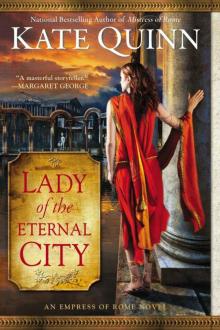 Lady of the Eternal City
Lady of the Eternal City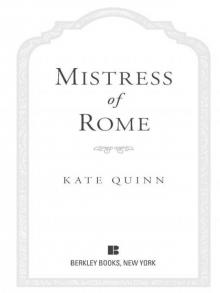 Mistress of Rome
Mistress of Rome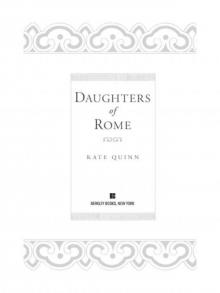 Daughters of Rome
Daughters of Rome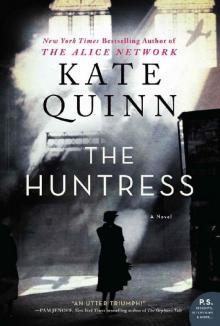 The Huntress
The Huntress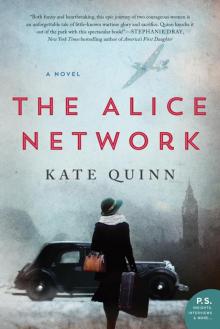 The Alice Network
The Alice Network The Lion and the Rose
The Lion and the Rose Empress of the Seven Hills
Empress of the Seven Hills The Serpent and the Pearl
The Serpent and the Pearl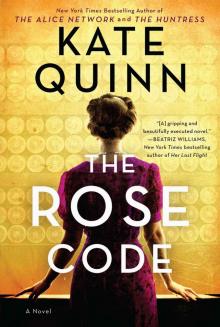 The Rose Code
The Rose Code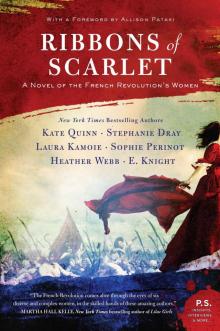 Ribbons of Scarlet
Ribbons of Scarlet A Song of War: a novel of Troy
A Song of War: a novel of Troy